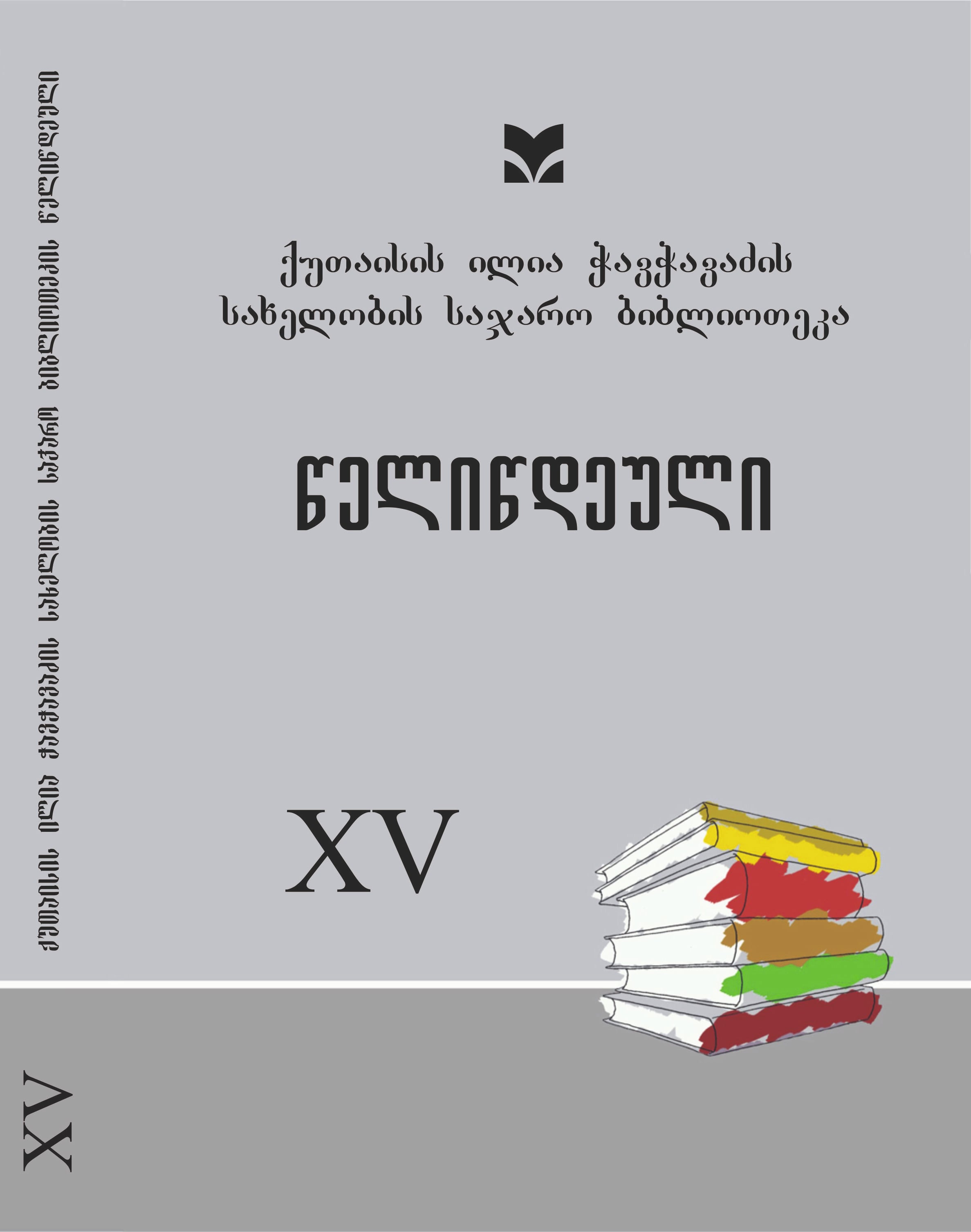Some Issues of Historical and Traditional Existence Conveyed by Surnames (According to the Ethnographic Material of Surnames that Migrated from Imereti and to Imereti)
DOI:
https://doi.org/10.61491/yk.15.2023.8067Keywords:
Ethnographic existence of Imereti, Georgian surnames, migrated surnames in GeorgiaAbstract
Ethnographic material found in the people’s memory (museum-archive) is a reliable primary source in the research of issues studied in various fields such as ethnology, history of ethnos, cultural history, geography, sociology, psychology, history of religion, mythology, folklore, and ethnological science.
Ethnographic material is the basis for new data, new and different results, and theories. Accordingly, one of the goals of our research work is to provide as much ethnographic material as possible, relevant to the research topic. This material reflects the „order of life“, and is interesting and useful for the reader, Kartvelology, and various fields of science.
We present the surnames of clans who were exiled from Imereti and migrated to Imereti (Kashibadze, Chaghalidze, Chirgadze, Gogokhia, Arkania, Bulia, Chegiani, Kutateladze, Khikhadze, Akhaladze, Akhobadze, Maghradze, Abramishvili, Maisuradze, Svanadze, Satmanidze, Abashidze, Kartsivadze) during the period of „Oghloba“. The results of the ethnological research depict the second hereditary names of the surnames, different characteristics of their existence, and their stories.
By studying our latest materials, it becomes clear: a. About the „plague“ (persecution of religion, destruction of churches and monasteries, destruction of self- consciousness, ethnic-cultural erosion, and the general destruction of the traditional way of life) by the communists, who fought against both man and icon, including Georgians who were harassed by them. b. About the references to Adjara, where Georgians who converted to another religion were derogatorily called „Tatar“, „Armenian“, „Azeri“, mocking their faith and religiosity. c. How the „provoked“ Abkhazians managed to cross the border of Abkhazia, inhabited by Svan-Megrelians, as far as the Enguri River. Despite this, Abkhazia was and remains a country of Georgians, distinguished only by its unique ethnographic characteristics. d. About the migration of the population from villages „for the need of a better life“, often leading to the complete emptying of villages. e. About the historical memory of dedication to the country, the most important aspect of the “consistency-oriented“ way of being, and the commitment to „saving Georgianness through women“. f. The terms „epidemic“ and „curse“ are used to describe the actions directed against the enemies of Georgia, reflecting the deep-seated resistance to threats against Georgian identity and cultural integrity.
In the matter of preserving the cultural life of the ethnos, self-awareness, national integrity, and the historical memory of dedication to the country, the preservation of its traditional-religious way of life is of utmost importance.




